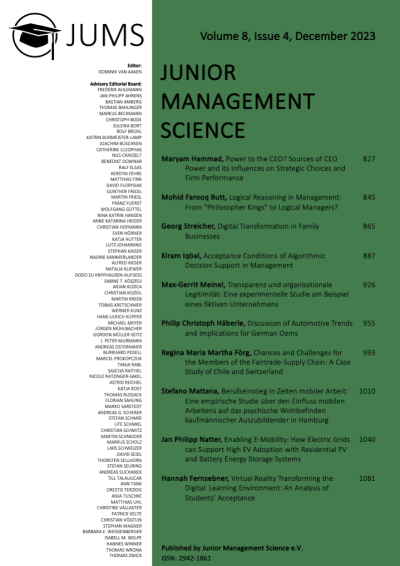Abstract
This thesis explores the acceptance of decision-aiding technologies in management, which is a challenging component in their use. To address the lack of research on algorithmic decision support at the managerial level, the thesis conducted a vignette study with two scenarios, varying the degree of anthropomorphizing features in the system interface. Results from the study, which included 281 participants randomly assigned to one of the scenarios, showed that the presence of anthropomorphized features did not significantly affect acceptance. However, results showed that trust in the system was a crucial factor for acceptance and that trust was influenced by users’ understanding of the system. Participants blindly trusted the system when it was anthropomorphized, but the study emphasized that system design should not focus on the benefits of blind trust. Instead, comprehensibility of the system results is more effective in creating acceptance. This thesis provided practical implications for managers on system design and proposed a structural model to fill a research gap on acceptance at the managerial level. Overall, the findings may assist companies in developing decision support systems that are more acceptable to users.
Keywords: Decision support systems; Algorithmic management; Artificial intelligence; Anthropomorphizing; Technology acceptance.

Dieses Werk steht unter der Lizenz Creative Commons Namensnennung 4.0 International.
Copyright (c) 2023 Kiram Iqbal

